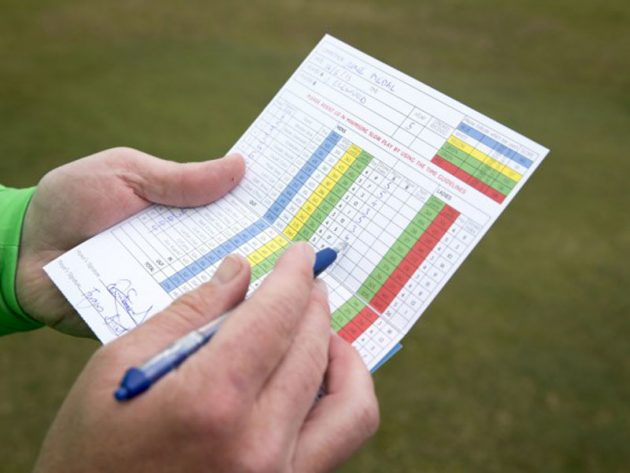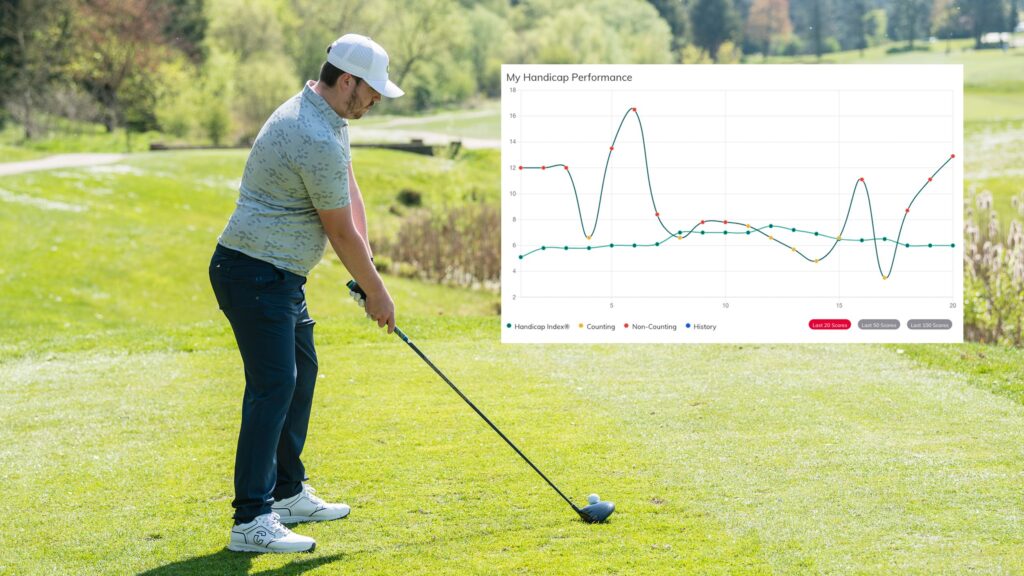There was lots of excitement when the World Handicap System was introduced in 2020, but the new way we measure our playing ability has proved fairly controversial since it launched during the Covid pandemic.
It is, in my view, far more complicated than the old CONGU system we used in the United Kingdom. Some believe that it disadvantages lower handicappers due to mid-and-high-index golfers receiving extra shots depending on the rating of the course they play and tees they go off from.
You may like
Sure, it gives a golfer a good idea of their ability and is a nice recognition to have, but England Golf’s iPlay system and some of the best golf apps basically do just that – without the ‘official’ tag or the £46 annual fee.

There are many ways to track your handicap, but only one Official way
(Image credit: Future)
England Golf said this year that it has 65,000 iGolf members, meaning revenue will be almost £3m per year. It is great that iGolf is helping to fund the sport in this country and it is difficult to argue against helping to grow the game and support the foundations.
I’m sure the organisation is doing very well out of it, but I am also sure that money does funnel down to the grassroots and help with the strength and sustainability of golf in England.
As well as being able to gain an official index via the slick MyEG app, another advantage of iGolf is the Public Liability Insurance it comes with.
I’m not sure I would be a user if I stopped my golf club membership, though, when they are plenty of other free alternatives to get an unofficial index and a fair idea of my current ability. That’s just me.
I am also not sure that an ‘official’ handicap which has not been gained from competitive club golf should carry as much weight as a golfer who regularly competes in medals and other official club competitions.
As someone who knows the pressure and nerves of playing in club championships, I feel social vs non-competitive golf is very, very different.

I believe ‘Official’ handicaps should be based on scores in club competitions only
(Image credit: Future)
‘Somewhat of a traditionalist’
Some will argue they cannot afford or justify a full club membership but would like to keep an active handicap, and that is a fair point.
The cost of golf memberships are continually rising and are understandably unaffordable to many. Had I not joined my club at the age of 21, with a reduced joining fee, I simply would not be a member today.
My view is just that official handicaps should be reserved for golf club members who regularly compete in competitions.
I guess I am somewhat of a traditionalist who grew up playing under the CONGU system, where your handicap was set based on how you played in competitions, from monthly medals and stablefords to board competitions and the club championship.
If I wanted my handicap to come down, I had to play well in my next competition.
Nowadays I can find some form and start handing in as many cards as I possibly can from social rounds in a short period of time, and then decide not to do so when I’m playing badly.
As a category two player, for example, under the old system I knew that for every stroke I beat my handicap I would come down 0.2 strokes. I knew that if I missed my buffer zone, two strokes above handicap, I would go up 0.1. It would take far longer for my handicap to go up and down in the older system vs today.

I must admit I have no idea what my handicap index will change to these days once I’ve handed my scorecard in.
I got down to 4 near the end of the CONGU system and it was one of my greatest golfing achievements. If I got down to 4 now under the WHS I would have far less satisfaction – possibly due to naivety and not understanding how the system works.
I also believe the WHS is far too easy to manipulate – I have examples from multiple people I know – and everyone uses it very differently. Our features editor was even investigated for violating the system.
I used to record a score every round I played but quickly realised that my regular playing partners did not, which led to my handicap coming down and theirs staying the exact same no matter how well they were playing.
Ultimately it has led me to handicap fatigue. I have never in my life taken less interest in what my handicap is despite loving the game as much as ever. Has the WHS ruined golf for lower handicappers? Quite possibly.
I respect nomadic golfers who are keen enough to have an Official handicap but came to the recent realisation that I am not sure what the point of one is outside of club golf.
I know multiple iGolf members and none of them ever play in Opens or official competitions, so I am a little confused.
This is not a knock to nomadic golfers – I am sure I’ll become one at some point in the future as membership costs continue to rise. This is more of a knock at the system.
So, what do you think of nomadic golfers having ‘official’ handicaps? Do they serve a purpose or do you think they are pointless? Let me know in the comment section below – I’ll be interested to read your responses.







